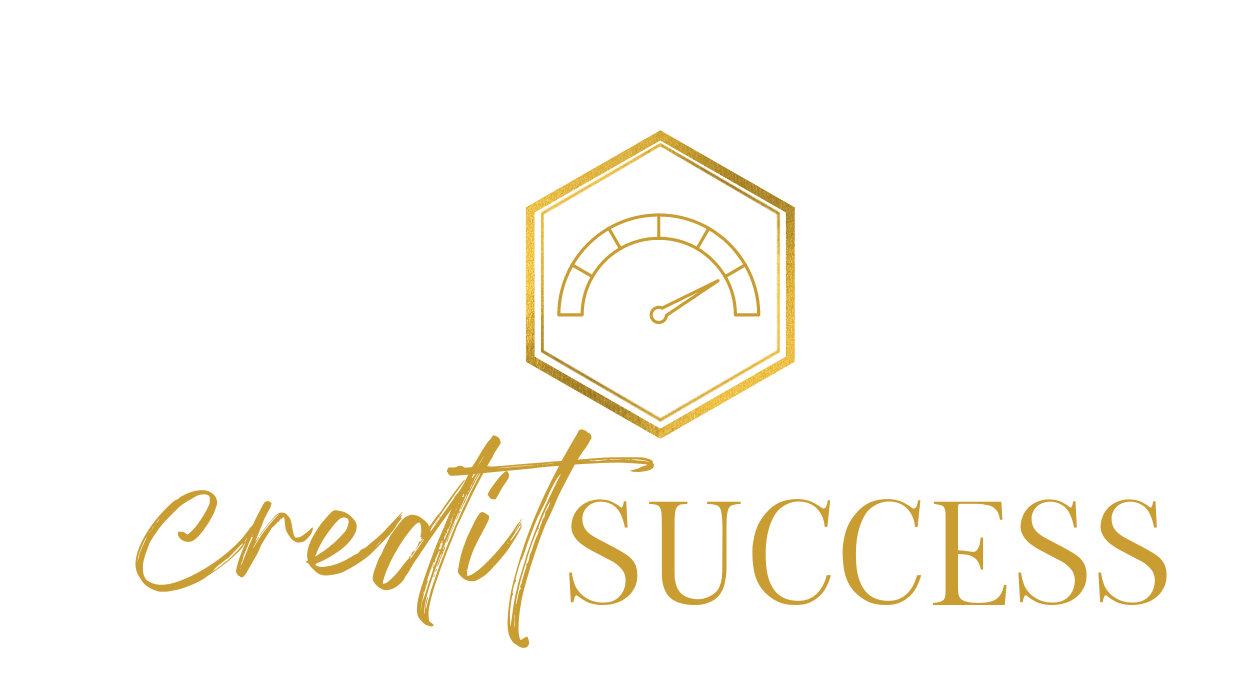Frequently Asked Questions
We get it, talking credit repair can be overwhelming but it doesn't need to be.
General
-
Can I stop paying my bills?
No. Even after a questionable negative item is removed from your credit, the actual debt is still owed (assuming it was valid to begin with). If you don’t pay the debt, the creditor or collection agency may re-report the listing. Removing a negative item without addressing the debt is only a temporary solution. In fact, if you feel a negative credit listing is 100% accurate, timely and verifiable, we recommend you don’t dispute it.
-
What should I do about a credit collection?
Unless the collection is being falsely attributed to you, pay it. The collection is likely already hurting your credit score, and leaving it unpaid will only make the damage worse.
If the debt is one that you do not owe, our service levels offer debt validation procedures that can help you get the collection removed from your credit profile.
-
How long does it take to repair my credit?
The process of repairing your credit report can take up to 8 weeks for more complicated cases. However, not all cases are successful. in which case you may be eligible for a refund.
Payments
-
Is credit repair expensive?
According to Equifax, a leading credit reporting agency, engaging the services of a credit repair company can often incur costs exceeding $1,000. These firms typically impose various charges, encompassing upfront fees, administrative fees, and "success fees" upon successfully removing negative entries from your credit report.
At our organisation, we do request a partial upfront payment to initiate our credit repair services. However, in the event that we are unable to achieve the desired results, we offer a full refund in accordance with our terms and conditions.
We advise exercising caution when considering credit repair companies that demand upfront fees without a corresponding refund policy in the event of unsuccessful outcomes.
-
Do you offer a Buy Now, Pay Later option?
No - a hard no. Buy Now, Pay Later schemes can severely affect your credit. Find out more here
-
What if I can't afford credit repair?
For free financial guidance, you have the option to reach out to a Financial Counsellor or visit moneysmart.gov.au. Additionally, the National Debt Helpline can be reached at 1800 007 007.
The National Debt Helpline is a cost-free service accessible from 9:30 AM to 4:30 PM, Monday through Friday. When you make contact, you will be directed to the service corresponding to your particular state.
If you cannot afford credit repair, you can contact a free Financial Counsellor or go to moneysmart.gov.au
National Debt Helpline - 1800 007 007
The free National Debt Helpline is open from 9.30am to 4.30pm, Monday to Friday.
When you call, you'll be transferred to the service in your state.
Mob Strong Debt Helpline - 1800 808 488
Mob Strong Debt Helpline is a free legal advice service about money matters for Aboriginal and Torres Strait Islander peoples from anywhere in Australia. The Helpline is open from 9.30am to 4.30pm, Monday to Friday.
Small Business Debt Helpline - 1800 413 828
If your business is struggling because of COVID-19 or natural disasters, call the Small Business Debt Helpline. The Helpline is open 9.00am to 5.30pm, Monday to Friday.
-
Do you provide a refund if I'm not successful?
Describe the item or answer the question so that site visitors who are interested get more information. You can emphasize this text with bullets, italics or bold, and add links. -
Is there a veteran discount?
Unfortunately, no.
Our services
-
Do you offer a service guarentee?
Yes. If we are not successful at repairing your credit, you might be eligible for your money back. View our terms and conditions here.
-
How do I know my credit has been repaired?
You will be provided with weekly updates via email. You will also be provided with confirmation of your credit report being repaired before final
payment is due.
-
How can I cancel the service if I no longer require it?
Following the completion of credit repair services, there is no continuation of our service. We do not impose any ongoing fees, including monthly monitoring fees, which are sometimes levied by other repair companies.
It's important to note that if you decide to cancel our services before the removal process has been concluded, the refund may not be issued as the removal service is contingent on the successful completion of our work.
-
How long have you been doing credit repair?
We have over 20 years experience in the finance industry and have been repairing Australian's credit for XX years.
-
Do our services really work?
Credit repair is indeed an effective process. We have successfully assisted numerous Australians in restoring their credit profiles, enabling them to attain financial independence and realize their homeownership aspirations. The methods employed for repairing your credit report and score are customized to each unique case.
Our approach involves comprehensive discussions with your credit provider, during which we meticulously assess the specifics of your situation, pinpoint any violations, and identify the grounds for potential removals.
Credit Reports
-
What is a credit report?
A credit report contains information about who you are and a history of your financial behaviour. In many cases, the credit report is the basis of evaluating your credit rating or determining your creditworthiness.
-
How can I improve my credit?
There are five main contributors to your credit score–payment history, amount of debt, length of credit history, credit mix and new credit. Managing your credit wisely by paying your bills on time, paying debt down and maintaining your current accounts could improve your score.
Beyond these five factors, your credit could contain negative items that are unfair or inaccurate, which can stay on your reports for up to seven to 10 years. If you don't want to wait that long, you can try repairing your credit. Learn more about building credit online, or call
-
Are a credit report and credit score the same thing?
No, your credit score is just one piece of your credit report. Your credit report also includes identifying information, trade lines, credit history, credit inquiries, public records, collections and other late payment information.
-
What is on my credit report?
Your credit report contains things like your identifying information, trade lines, credit limits, account names, credit history, credit inquiries, public records, collections, late payment information, and of course, and your credit score
-
Who has access to my credit report?
Your credit report is generally only looked at by those who are considering loaning you money, like a bank, car dealership or credit card issuer.
-
Can bad credit be corrected or deleted from my report?
The law entitles you to an accurate, fair and substantiated credit profile. If something on your credit isn’t right, you can correct or repair it with the credit bureaus and your creditors.
-
How was my credit report created?
The first time you applied for credit, the lender will have likely given your details to a credit reporting body that now holds your credit report.
-
How does my credit report affect me?
Lenders rely on your credit report and credit score (also known as a credit rating) as pivotal factors in determining whether to extend credit or provide you with a loan.
Recognising this fact empowers you to engage in more favorable negotiations and gain insights into the reasons behind a lender's decision to decline your application.
Your credit score is derived from a compilation of personal and financial data contained within your credit report.
The good news is that you can access both your credit score and credit report at no cost.
Contact us to find out how.
Credit Score
-
Where can I find out my credit score?
In Australia, consumers have access to three primary credit reporting agencies.
These agencies may maintain distinct sets of information, which means you could potentially have credit reports with more than one of them.
The three major credit reporting agencies in Australia are:
1. Equifax - You can request your free credit report from Equifax by visiting www.mycreditfile.com.au.
2. Illion - To obtain your free credit report from Illion, please go to www.creditcheck.illion.com.au.
3. Experian - Your free credit report from Experian can be obtained through www.experian.com.au.
These links provide you with the means to access your credit reports from these agencies at no cost.
-
What is a good and bad credit score?
A good credit score is generally considered above 650 out of a maximum score of 1200. Scores below 650 may be considered lower or fair creditworthiness to lenders.
This aligns with the credit scoring practices used by major credit reporting agencies in Australia.
-
Who measures my credit score?
Describe the item or answer the question so that site visitors who are interested get more information. You can emphasize this text with bullets, italics or bold, and add links. -
Will paying my bills help my credit score?
You might think so, but unfortunately it does not. When you pay an old debt, the negative credit item doesn’t disappear, but is typically listed as a paid delinquency, charge-off or collection. If your goal is to repair your credit, just paying off your debts won’t get you there.
-
What effects my credit score?
There are five main factors to your credit score–payment history, credit usage, credit age, credit mix and recent credit. Your payment history is the biggest contributor on the list, and can be directly affected by credit repair
-
Can divorce hurt my score?
Indirectly, yes. While filing for divorce won’t hurt your score, some of the symptoms of divorce could create credit problems. For example, many people miss a payment on their credit during the frenzy of divorce. Or in the aftermath, it may be unclear who is responsible to pay a debt, and payments may be missed. These missed or late payments could adversely impact your score.
-
Can identity theft effect my credit?
Describe the item or answer the question so that site visitors who are interested get more information. You can emphasize this text with bullets, italics or bold, and add links. -
Does medical debt effect my credit score?
Yes, past-due medical bills can affect your credit. The good news is, there are laws to protect against certain practices in medical debt reporting. If your credit is being negatively affected by medical bills, credit repair may be a solution for you
-
Who measures my credit score?
There are three main credit bureaus are Equifax, Experian and TransUnion. When lenders want to see your credit report, they will request it from one or more of these reporting agencies.
Your report and score can differ from bureau to bureau because they don’t always have the same information, so we recommend you check each report separately to confirm that everything is on the up-and-up.
Essentially, a credit bureau is a company that tracks your ability to pay. They collect information relating to your financial habits, then make this information available to lending institutions and credit card companies. There are three credit bureaus–Equifax, TransUnion and Experian.
-
What are the minimum scores to help to get funding for for cars, houses etc.
House: There are many factors that go into being approved for a mortgage, but you'll need at least a score of 620 to be approved for a traditional home loan.
Car: The minimum accepted score for a car loan will depend on the amount of money being requested, but some lenders will approve scores as low as 500–assuming you don't mind paying extra money in interest.
Loan: While that depends on the amount you're asking for, you can get a personal loan with a score as low 500–assuming you don't mind paying extra money in interest.



